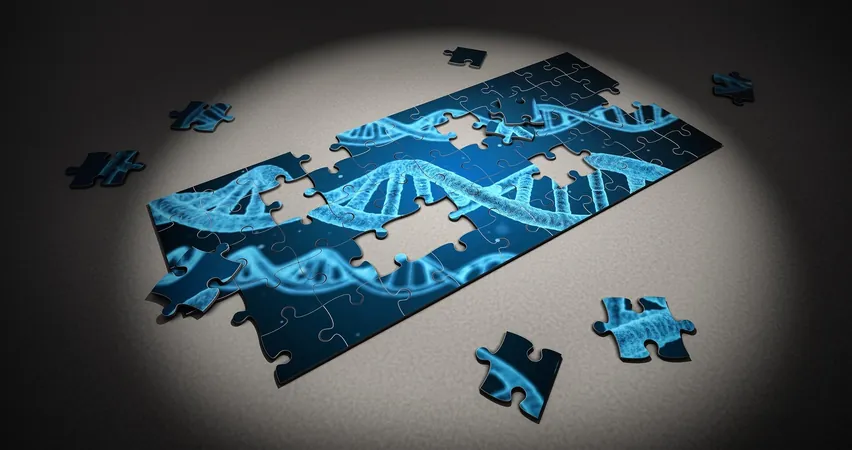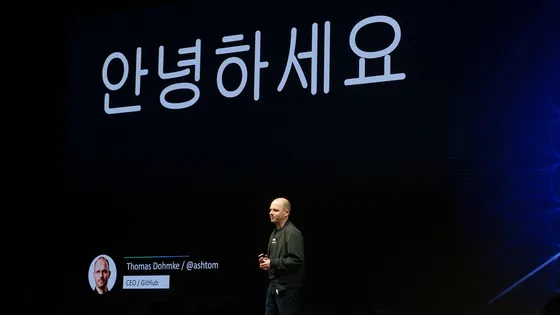
Uncovering the Truth: Why Precision Oncology Treatments Favor Some Ancestries Over Others
2025-01-10
Author: Daniel
Introduction
The landscape of cancer treatment has undergone a seismic shift in recent years, with nearly half of all new cancer drugs approved by the U.S. Food and Drug Administration (FDA) geared towards targeting specific genetic alterations responsible for tumor growth. These advancements in precision oncology have revolutionized treatment options, allowing oncologists to match patients with therapies tailored to their unique genetic profiles. However, a troubling disparity has emerged: not all patients benefit equally from these innovations.
Disparities in Access to Treatment
A groundbreaking study from Memorial Sloan Kettering Cancer Center (MSK), published in JAMA Oncology, sheds light on the stark differences in access to these life-saving therapies among patients of varying ancestries. Lead author Kanika Arora, MS, highlights alarming findings: patients of European ancestry are significantly more likely to benefit from these advanced treatments compared to their African, East Asian, or South Asian counterparts.
“Especially in the past five years, as the number of precision oncology therapies has surged, the disparity in benefits between patients of African ancestry and those of European ancestry has become a pressing concern,” says Arora. Senior author Debyani Chakravarty, Ph.D., adds that these disparities are deepening existing inequalities in cancer outcomes, particularly for Black Americans and other minority populations.
Historical Focus on European Ancestry
Historically, studies in cancer genomics have predominantly focused on data from self-reported white patients, with over 80% of samples in major databases like The Cancer Genome Atlas coming from individuals of European descent. This lack of diversity in research has serious implications for drug development: the biomarkers essential for determining treatment effectiveness often lack representation from non-European ancestries.
Variations in Cancer Profiles
Understanding the differences in cancer development rates across ancestries is crucial. For instance, people of African ancestry are more susceptible to multiple myeloma, prostate cancer, and triple-negative breast cancer, while East Asians face higher rates of stomach and certain head and neck cancers. This variance in cancer profiles suggests a compelling need for more inclusive genetic research that reflects the diverse population.
Study Findings
To explore these issues, the MSK study analyzed data from over 59,000 patients who had their tumors sequenced between 2014 and 2022. The results revealed a concerning trend: cancer patients of European ancestry were much more likely to be matched with FDA-approved precision drugs than patients from other backgrounds. Between 2012 and 2023, the likelihood of receiving a personalized treatment surged dramatically, increasing approximately 9.1-fold for patients of European ancestry compared to a mere 6-fold increase for those of African ancestry.
Examples of Disparity
Examples underscore this disparity. Patients of East and South Asian ancestries frequently benefited from drugs targeting specific mutations like EGFR in lung cancer. However, treatments like pembrolizumab (Keytruda) predominantly favor Europeans due to a higher occurrence of a genetic marker called high tumor mutation burden in this group. Simultaneously, patients of African ancestry tend to exhibit different KRAS mutations in colorectal cancer, for which fewer effective drug options exist.
The Way Forward
The key to bridging this alarming gap in cancer treatment lies in understanding genetic differences and ensuring that clinical trials are accessible to patients from all ancestries. Dr. Chakravarty emphasizes the need for better representation of diverse populations in research trials. “To truly advance the field of oncology and improve outcomes across all demographics, we must learn from historically underrepresented patients just as we have from those of European ancestry.”
Conclusion
Addressing the disparities in precision oncology is not merely a scientific challenge but a pressing ethical imperative, calling for immediate action to equalize access to these life-saving innovations. As we look to the future of cancer treatment, it’s crucial that no ancestry is left behind in the quest for health equity. This is not just about medicine; it's about ensuring justice in healthcare for all.


 Brasil (PT)
Brasil (PT)
 Canada (EN)
Canada (EN)
 Chile (ES)
Chile (ES)
 Česko (CS)
Česko (CS)
 대한민국 (KO)
대한민국 (KO)
 España (ES)
España (ES)
 France (FR)
France (FR)
 Hong Kong (EN)
Hong Kong (EN)
 Italia (IT)
Italia (IT)
 日本 (JA)
日本 (JA)
 Magyarország (HU)
Magyarország (HU)
 Norge (NO)
Norge (NO)
 Polska (PL)
Polska (PL)
 Schweiz (DE)
Schweiz (DE)
 Singapore (EN)
Singapore (EN)
 Sverige (SV)
Sverige (SV)
 Suomi (FI)
Suomi (FI)
 Türkiye (TR)
Türkiye (TR)
 الإمارات العربية المتحدة (AR)
الإمارات العربية المتحدة (AR)